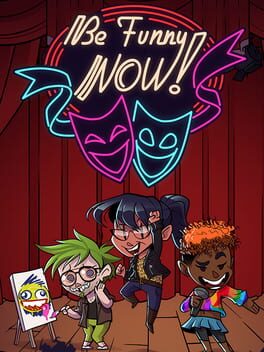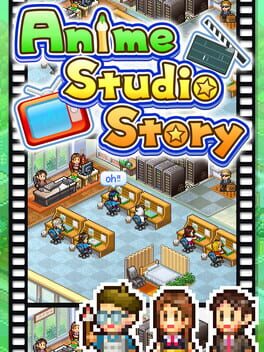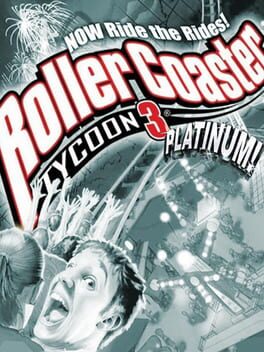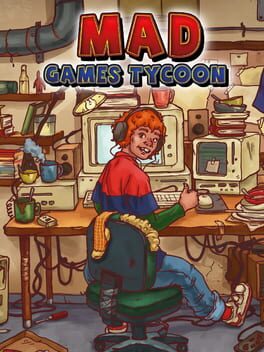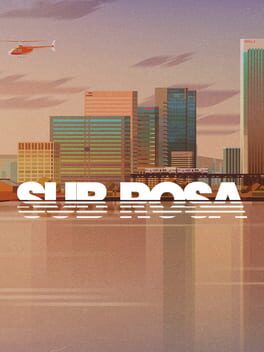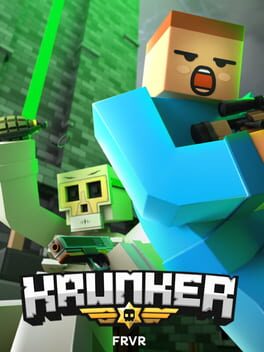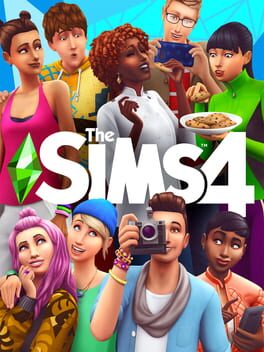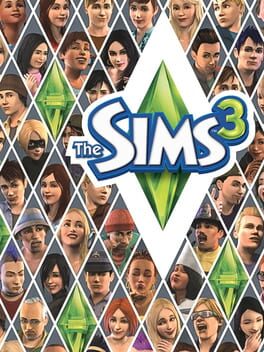Yultimona
2022
It's one thing to not be funny in a room full of people who know you. But if you ask me, it feels a whole lot like public shaming when you fail to amuse a group of people you've never met before, which can kill any and all enjoyment you get out of an experience.
Lingering insecurities aside, I don't think Be Funny Now! is an experiment that's working. Jack Douglas and his team have attempted to bring Jackbox to the masses. There's one problem with this approach: Jackbox in a room full of people you can't talk with doesn't work. But if you try to remedy that issue by maybe adding voice chat, you run into another beast entirely: Jackbox in a room full of strangers is a terrible, bad, god-awful fucking idea. Can you imagine the sheer amount of shit-talking and bad-mouthing that would go on? You'd be playing a round casually, and someone would call you the n-word in a string of slurs.
So between bouts of public shaming that can trigger an intense feeling of inadequacy in the wrong person and vitriolic abuse, the very conception of Be Funny Now was never going to be more than a toss and a miss. But here's the thing: a game like Be Funny Now can work because Skribbl.io exists. I know it's silly to compare the two games because Be Funny Now has loads of evident production value put into it, but the difference is the point. Skribbl.io is a comfort game: you can put it on, do a terrible job at guessing what all of the words are, and still have a ton of fun. Even when I leave that game feeling befuddled, I've had a good time. It's a social game where you can be judged, but that judgment is easy to ignore. Other people are technically a part of the game; it wouldn't be as much fun without them. But inherently, it's a game about you.
In Jackbox, you don't matter. You are one player in a room full of six or seven, and that's the appeal. Even if your jokes don't land, someone else's will, and that inspires you to keep iterating. Nobody wants to look you in the eye and tell you that you're unfunny and annoying, and if they do, they're the exception. In a room where you know everyone, trying and failing is not a fool's game; it's the establishment. The problem with commodifying this experience into a game with public lobbies is that the establishment shifts somewhat. All online games with strangers, whether you'd like to believe it or not, are intrinsically selfish ventures. When someone throws their controller across the room or smashes their desk, it's because both are extensions of themselves. Your controller does all the work for you; likewise, your desk is where your mouse lives. When you lose at a game, the parts of you that helped you lose are just as problematic. The tools of the trade have failed you.
Votes become bullets. The blaring sound of taunts and emotes are your only forms of expression. The battleground is a game of wits, a hand that few can play well and fewer can make careers out of. But empathy isn't a present option. There's nothing you can do to tell someone that you liked their effort, even if it did nothing for you. And even if there was, the push towards doing what satisfies you means that the incentive to be understanding has to be a personal one.
The best part of Be Funny Now is when the game tasks you with drawing something. Draw Mario, or draw the saddest thing you can think of. And for a brief moment, the game gets as close as possible to its inspirations. Even if someone draws a photorealistic Mario, another person might draw one that makes you reminisce on how cute your childhood was, and the person after them might make you laugh. The only wrong way to draw something is to hide in your shell and draw nothing at all. But then the game still gives you the opportunity to throw tomatoes at people and shower others in roses, and what was initially cute becomes perpetually isolating. In Skribbl, a bad drawing of Mario is still Mario. It's not better or worse than anybody else's. And yet the game isn't a hugbox: it is what it is, and value is not part of that equation.
Be Funny Now started out strong, with over 500 people playing it when it first launched on Steam. That number has shrunk to double digits, and the game's only been out for three months. You could argue that that number doesn't account for players on mobile devices, but when the queue times are as long as they currently are, it's not hard to guess how well this is doing on those platforms. Jack Douglass put up a billboard for this game as a bit of advertising in the weeks leading up to release. He put down a hefty chunk of money for it to be in a spot he knew would catch the attention of many. But like Frances McDormand fighting with a sheriff, we only know what it was supposed to say because he made an effort to preserve it as it was meant to be seen. The most important part of the ad, the part that led you to the game's website, was all but impossible to spot unless you were standing under the ad. I must say, that's the most accurate piece of advertising I've ever seen for a game.
Lingering insecurities aside, I don't think Be Funny Now! is an experiment that's working. Jack Douglas and his team have attempted to bring Jackbox to the masses. There's one problem with this approach: Jackbox in a room full of people you can't talk with doesn't work. But if you try to remedy that issue by maybe adding voice chat, you run into another beast entirely: Jackbox in a room full of strangers is a terrible, bad, god-awful fucking idea. Can you imagine the sheer amount of shit-talking and bad-mouthing that would go on? You'd be playing a round casually, and someone would call you the n-word in a string of slurs.
So between bouts of public shaming that can trigger an intense feeling of inadequacy in the wrong person and vitriolic abuse, the very conception of Be Funny Now was never going to be more than a toss and a miss. But here's the thing: a game like Be Funny Now can work because Skribbl.io exists. I know it's silly to compare the two games because Be Funny Now has loads of evident production value put into it, but the difference is the point. Skribbl.io is a comfort game: you can put it on, do a terrible job at guessing what all of the words are, and still have a ton of fun. Even when I leave that game feeling befuddled, I've had a good time. It's a social game where you can be judged, but that judgment is easy to ignore. Other people are technically a part of the game; it wouldn't be as much fun without them. But inherently, it's a game about you.
In Jackbox, you don't matter. You are one player in a room full of six or seven, and that's the appeal. Even if your jokes don't land, someone else's will, and that inspires you to keep iterating. Nobody wants to look you in the eye and tell you that you're unfunny and annoying, and if they do, they're the exception. In a room where you know everyone, trying and failing is not a fool's game; it's the establishment. The problem with commodifying this experience into a game with public lobbies is that the establishment shifts somewhat. All online games with strangers, whether you'd like to believe it or not, are intrinsically selfish ventures. When someone throws their controller across the room or smashes their desk, it's because both are extensions of themselves. Your controller does all the work for you; likewise, your desk is where your mouse lives. When you lose at a game, the parts of you that helped you lose are just as problematic. The tools of the trade have failed you.
Votes become bullets. The blaring sound of taunts and emotes are your only forms of expression. The battleground is a game of wits, a hand that few can play well and fewer can make careers out of. But empathy isn't a present option. There's nothing you can do to tell someone that you liked their effort, even if it did nothing for you. And even if there was, the push towards doing what satisfies you means that the incentive to be understanding has to be a personal one.
The best part of Be Funny Now is when the game tasks you with drawing something. Draw Mario, or draw the saddest thing you can think of. And for a brief moment, the game gets as close as possible to its inspirations. Even if someone draws a photorealistic Mario, another person might draw one that makes you reminisce on how cute your childhood was, and the person after them might make you laugh. The only wrong way to draw something is to hide in your shell and draw nothing at all. But then the game still gives you the opportunity to throw tomatoes at people and shower others in roses, and what was initially cute becomes perpetually isolating. In Skribbl, a bad drawing of Mario is still Mario. It's not better or worse than anybody else's. And yet the game isn't a hugbox: it is what it is, and value is not part of that equation.
Be Funny Now started out strong, with over 500 people playing it when it first launched on Steam. That number has shrunk to double digits, and the game's only been out for three months. You could argue that that number doesn't account for players on mobile devices, but when the queue times are as long as they currently are, it's not hard to guess how well this is doing on those platforms. Jack Douglass put up a billboard for this game as a bit of advertising in the weeks leading up to release. He put down a hefty chunk of money for it to be in a spot he knew would catch the attention of many. But like Frances McDormand fighting with a sheriff, we only know what it was supposed to say because he made an effort to preserve it as it was meant to be seen. The most important part of the ad, the part that led you to the game's website, was all but impossible to spot unless you were standing under the ad. I must say, that's the most accurate piece of advertising I've ever seen for a game.
2017
2018
(This review is part of an upcoming list I'm working on ranking games about making games from best to worst. Enjoy!)
Game Dev Studio realizes something that most games on this list do not: the creative process is anything but a power fantasy.
I enjoy games like Game Dev Tycoon because of their wish fulfillment factor. I like games, I'd love to make them, and I wish it were easy. But it's not. In fact, games are actually harder to make than movies. Any hack can pick up a camera and make a decent short film if the script they're working with is good enough. To develop games, you have to know significantly more about what you're getting yourself into.
In Game Dev Studio, you can choose to take the path of the solo developer. But a crushing reality hits you as soon as you decide to go down that path: you are not a living multi-tool; you are a person with vulnerabilities and strengths in different areas. If you want to be able to do things "right," you have to be part of a team. Teams cost money, though. You have to take care of everyone that's working for you, or they'll all leave you in the dust. If your company goes under, they're the first ones to jump ship. They lose motivation over time and will occasionally quit working out of no obligation but to keep themselves working on things that they like. And then, when it comes to the games themselves, those are fragile, too. You can have a total gem on your hands that'll flop if you fail to market it enough. They can take years to create, and technology will not wait for you. And on top of that, they can be pretty expensive to make. If you're not dealing with development costs, you're handing the game over to QA enough for it to take millions to recoup your development fees.
Game Dev Studio is a fairly intimate portrayal of how games are made and makes you consider the value of the artist in a way in which few games in this subgenre do. It's near the top of this list for this reason alone. It's far from a perfect game, however, and if the developer who made it ever decided to go back for a sequel, there's a lot he could improve on. Once you know your way around everything, Game Dev Studio becomes incredibly easy to cheese. The idea of employees being people with flaws and strengths isn't explored to the extent that it could have been, and they never have serious conflicts with each other. Past a certain point, the game loses a lot of its challenge and does become the power fantasy it's trying so hard to condemn. The game also has many features that either don't feel polished enough or feel outright pointless in execution. Conventions are good while you're starting out but practically pointless by the time you've reached the endgame. Bribing reviewers is funny in concept but doesn't do much to say anything about the way games are reviewed and rarely changes as the years go on. You can also slander and sue the shit out of your rivals, which I've almost never done because the game does nothing to force you in that direction. You can straight up ignore all of the companies trying to poach your employees with almost no repercussions.
Other than that, though, Game Dev Studio is an admirable effort that gets very close to perfection within this subgenre. If it were named anything else, I could see the game having seen more success than it did when it first came out. But hindsight is 20/20, and it's not hard to see why the game is so close in title to Game Dev Tycoon when it's essentially a statement against that game.
Game Dev Studio realizes something that most games on this list do not: the creative process is anything but a power fantasy.
I enjoy games like Game Dev Tycoon because of their wish fulfillment factor. I like games, I'd love to make them, and I wish it were easy. But it's not. In fact, games are actually harder to make than movies. Any hack can pick up a camera and make a decent short film if the script they're working with is good enough. To develop games, you have to know significantly more about what you're getting yourself into.
In Game Dev Studio, you can choose to take the path of the solo developer. But a crushing reality hits you as soon as you decide to go down that path: you are not a living multi-tool; you are a person with vulnerabilities and strengths in different areas. If you want to be able to do things "right," you have to be part of a team. Teams cost money, though. You have to take care of everyone that's working for you, or they'll all leave you in the dust. If your company goes under, they're the first ones to jump ship. They lose motivation over time and will occasionally quit working out of no obligation but to keep themselves working on things that they like. And then, when it comes to the games themselves, those are fragile, too. You can have a total gem on your hands that'll flop if you fail to market it enough. They can take years to create, and technology will not wait for you. And on top of that, they can be pretty expensive to make. If you're not dealing with development costs, you're handing the game over to QA enough for it to take millions to recoup your development fees.
Game Dev Studio is a fairly intimate portrayal of how games are made and makes you consider the value of the artist in a way in which few games in this subgenre do. It's near the top of this list for this reason alone. It's far from a perfect game, however, and if the developer who made it ever decided to go back for a sequel, there's a lot he could improve on. Once you know your way around everything, Game Dev Studio becomes incredibly easy to cheese. The idea of employees being people with flaws and strengths isn't explored to the extent that it could have been, and they never have serious conflicts with each other. Past a certain point, the game loses a lot of its challenge and does become the power fantasy it's trying so hard to condemn. The game also has many features that either don't feel polished enough or feel outright pointless in execution. Conventions are good while you're starting out but practically pointless by the time you've reached the endgame. Bribing reviewers is funny in concept but doesn't do much to say anything about the way games are reviewed and rarely changes as the years go on. You can also slander and sue the shit out of your rivals, which I've almost never done because the game does nothing to force you in that direction. You can straight up ignore all of the companies trying to poach your employees with almost no repercussions.
Other than that, though, Game Dev Studio is an admirable effort that gets very close to perfection within this subgenre. If it were named anything else, I could see the game having seen more success than it did when it first came out. But hindsight is 20/20, and it's not hard to see why the game is so close in title to Game Dev Tycoon when it's essentially a statement against that game.
1996
Eh?
I find it funny that I know of this game because people always kept saying that Game Dev Tycoon was a rip-off of it because I find this to be a weaker game. Think about it this way: Game Dev Tycoon gets to the meat-and-potatoes of what a good casual tycoon game is like. It's intuitive, doesn't waste your time, and while guesswork is involved, it feels more like a pipeline of discovery and less like a total headscratcher. A fundamental part of all Kairosoft games is giving up and eventually looking up what all of the combinations are. I wish I could say that that's just a me thing, and while it totally is in a way, I don't do it because I'm lazy. The core loop of these games is compelling in short bursts, but anything longer than that will kill your enthusiasm. I've felt this in all of their games, but Game Dev Story has always been the most egregious to me. For an experience that's supposed to be casual, there are entirely too many knobs and switches to play with. At least, it feels that way because that's how it's presented.
I'll give Game Dev Story credit for its cute and charming presentation. I've always found that a lot of these games tend to have pretty flat and unappealing aesthetics. Game Dev Tycoon will, at the very least, make you smile. I just wish I had more to say about this than that.
I find it funny that I know of this game because people always kept saying that Game Dev Tycoon was a rip-off of it because I find this to be a weaker game. Think about it this way: Game Dev Tycoon gets to the meat-and-potatoes of what a good casual tycoon game is like. It's intuitive, doesn't waste your time, and while guesswork is involved, it feels more like a pipeline of discovery and less like a total headscratcher. A fundamental part of all Kairosoft games is giving up and eventually looking up what all of the combinations are. I wish I could say that that's just a me thing, and while it totally is in a way, I don't do it because I'm lazy. The core loop of these games is compelling in short bursts, but anything longer than that will kill your enthusiasm. I've felt this in all of their games, but Game Dev Story has always been the most egregious to me. For an experience that's supposed to be casual, there are entirely too many knobs and switches to play with. At least, it feels that way because that's how it's presented.
I'll give Game Dev Story credit for its cute and charming presentation. I've always found that a lot of these games tend to have pretty flat and unappealing aesthetics. Game Dev Tycoon will, at the very least, make you smile. I just wish I had more to say about this than that.
2014
Honestly, pretty fun for a phone tycoon game. Having played a few Kairosoft games, it's not hard to notice their formula. But it works! There's enough variety in each game for it to feel distinct from another.
I've put the most amount of time into Anime Studio Story, in specific. Of the games I've played by this developer, this one feels the least grindy and requires the least amount of guesswork. It's clean, simple fun, and I would absolutely give it four stars if it were not for one specific thing: the "fast-forward" ability is only unlocked when you've finished the game. Considering this game's progression system, having it by that point is only useful if you haven't made an uber-successful anime empire by then. The worst part about this is that this unlock does not transfer across save files. Did you beat the game on one save file and start a new run on your other slot? Too bad! You have to unlock the ability to play the game at an enjoyable pace all over again. This kind of oversight reeks of the feature being an afterthought. Basic features should not be unlocks that are held as ransom until the end of the game; that's fucking dumb. This isn't as much of an issue on your first playthrough, but it's an absolute drag to deal with on multiple. And since this is predominantly a game you'll be playing on your phone; it's almost guaranteed that there will be multiple. Thankfully, Kairosoft learned from this on a few future releases. The Manga Works includes it from the get-go; it's funny because I got a message about the ability being unlocked, even though I'd already been using it for hours. Mistake or not, it shows some form of progression, and I hope to god that it's something that's carried on to their other games.
Regardless of that one thing, I do genuinely recommend Anime Studio Story if you're looking for a cute little small-scale tycoon game to fill up your downtime. The one thing that I do have to note is that anything but the mobile versions of these games is a scam. There's no reason for them to be charging nine dollars for these games on Steam and fourteen dollars for them on Switch when they're a buck-a-pop on the App Store or Google Play. I mean, sure, each store offers different cuts. But from a consumer's perspective, you're paying extra for a port with no substantial changes. If you have a Nintendo Switch, you probably also have a cell phone. If you have a computer, you can emulate these games on the Blustacks emulator and save yourself a few extra bucks with virtually no downsides. Wanting to support the developers is one thing, but if that's the intent, why don't they, I don't know, make new games for these platforms? I know that's probably asking for more than it's worth, but it's the only thing that really makes sense to me.
I've put the most amount of time into Anime Studio Story, in specific. Of the games I've played by this developer, this one feels the least grindy and requires the least amount of guesswork. It's clean, simple fun, and I would absolutely give it four stars if it were not for one specific thing: the "fast-forward" ability is only unlocked when you've finished the game. Considering this game's progression system, having it by that point is only useful if you haven't made an uber-successful anime empire by then. The worst part about this is that this unlock does not transfer across save files. Did you beat the game on one save file and start a new run on your other slot? Too bad! You have to unlock the ability to play the game at an enjoyable pace all over again. This kind of oversight reeks of the feature being an afterthought. Basic features should not be unlocks that are held as ransom until the end of the game; that's fucking dumb. This isn't as much of an issue on your first playthrough, but it's an absolute drag to deal with on multiple. And since this is predominantly a game you'll be playing on your phone; it's almost guaranteed that there will be multiple. Thankfully, Kairosoft learned from this on a few future releases. The Manga Works includes it from the get-go; it's funny because I got a message about the ability being unlocked, even though I'd already been using it for hours. Mistake or not, it shows some form of progression, and I hope to god that it's something that's carried on to their other games.
Regardless of that one thing, I do genuinely recommend Anime Studio Story if you're looking for a cute little small-scale tycoon game to fill up your downtime. The one thing that I do have to note is that anything but the mobile versions of these games is a scam. There's no reason for them to be charging nine dollars for these games on Steam and fourteen dollars for them on Switch when they're a buck-a-pop on the App Store or Google Play. I mean, sure, each store offers different cuts. But from a consumer's perspective, you're paying extra for a port with no substantial changes. If you have a Nintendo Switch, you probably also have a cell phone. If you have a computer, you can emulate these games on the Blustacks emulator and save yourself a few extra bucks with virtually no downsides. Wanting to support the developers is one thing, but if that's the intent, why don't they, I don't know, make new games for these platforms? I know that's probably asking for more than it's worth, but it's the only thing that really makes sense to me.
I will never forget the time my older brother built a coaster that was just called "wait in line: the ride" and it was a kid's coaster in the form of a circle where you stopped every second because there were too many carts on the track. I remember this one specifically because a guest went on this one with a kid and then spent one in-game year on the track. He got off and the first thing that came to his mind was "eh, not really for me."
Contrary to its name, Rollercoaster Tycoon 3 is best played as a sandbox game. I have yet to talk to anyone who's played this game as intended. Perhaps it's not fair for me to judge the game at all, then. But facts are facts: I've spent an absurd amount of time playing this and I have no regrets.
What makes RCT3 such an enjoyable sandbox game all of these years later is that it eschews realism. As a kid, I thought that your guests being immortal was a flaw. But now that I'm older, I can recognize that this game wouldn't be half as much fun if you weren't able to launch an air-powered coaster at a crowd of people with practically no repercussions. The game may ask you to care when it tells you you're running a notoriously unsafe park; I see it as a badge of honor. Who cares about things such as ethics? Rollercoasters and food are free but our bathrooms cost $10 per person. We purposely host extremely nauseating coasters and are withholding medical assistance. If dried out vomit isn't your cup of tea, too bad. I have the money to make everyone on earth a janitor, but I chose to make them all cute elephants instead. Who said that kids coasters have to be slow and boring? Our kids coasters have drops that make even the most extreme of our tracks weep in envy. And supervision? Who needs supervision? Our supervisor has a backstroke so strong that 2,000 feet of water can't drown him. Logrides crash into pools and rollercoasters trap guests in mountains. Half of our coasters are too intense for the layman to indulge in. We let dangerous animals out of our zoo on purpose so we can practice our aim on helpless guests. We are the number one theme park in America. Despite our disasterous reputation, we still get hundreds of customers every day.
Holy shit, this game is stupid. Holy shit, I absolutely adore it.
Contrary to its name, Rollercoaster Tycoon 3 is best played as a sandbox game. I have yet to talk to anyone who's played this game as intended. Perhaps it's not fair for me to judge the game at all, then. But facts are facts: I've spent an absurd amount of time playing this and I have no regrets.
What makes RCT3 such an enjoyable sandbox game all of these years later is that it eschews realism. As a kid, I thought that your guests being immortal was a flaw. But now that I'm older, I can recognize that this game wouldn't be half as much fun if you weren't able to launch an air-powered coaster at a crowd of people with practically no repercussions. The game may ask you to care when it tells you you're running a notoriously unsafe park; I see it as a badge of honor. Who cares about things such as ethics? Rollercoasters and food are free but our bathrooms cost $10 per person. We purposely host extremely nauseating coasters and are withholding medical assistance. If dried out vomit isn't your cup of tea, too bad. I have the money to make everyone on earth a janitor, but I chose to make them all cute elephants instead. Who said that kids coasters have to be slow and boring? Our kids coasters have drops that make even the most extreme of our tracks weep in envy. And supervision? Who needs supervision? Our supervisor has a backstroke so strong that 2,000 feet of water can't drown him. Logrides crash into pools and rollercoasters trap guests in mountains. Half of our coasters are too intense for the layman to indulge in. We let dangerous animals out of our zoo on purpose so we can practice our aim on helpless guests. We are the number one theme park in America. Despite our disasterous reputation, we still get hundreds of customers every day.
Holy shit, this game is stupid. Holy shit, I absolutely adore it.
2003
Sigma male grindset:
- Land on opponent's spaces, accept duel
- Go for cash, not stars
- Go ALL IN, so your opponent doesn't have any money to buy a star with
- Win
- Do this to everyone and multiple times
- Get over a hundred coins while the player in second place is struggling to get 50
- Watch as they turn the game off and start playing Shrek 2 instead because you're winning
- Land on opponent's spaces, accept duel
- Go for cash, not stars
- Go ALL IN, so your opponent doesn't have any money to buy a star with
- Win
- Do this to everyone and multiple times
- Get over a hundred coins while the player in second place is struggling to get 50
- Watch as they turn the game off and start playing Shrek 2 instead because you're winning
Stunts & Effects is a pretty neat expansion that adds just enough to be warranted. The highlight of the show here is absolutely the stuntmen, at least, as far as the tutorial for this is concerned. The tutorial does its job, but here's where I have to knock off points: you can't skip it. And you have to go through it every time you start a new save file. Great if you plan on keeping one, terribad if you like to dip your toes in multiple.
2005
The best part about The Movies isn't how goofy it all is. It's easy to look at this and have a good laugh at how all the movies you're making aren't very good. But there's a certain special sauce to it that makes it hold up all these years later.
There's a trope with tycoon games that I've always found somewhat troublesome. Employees are not treated as people but as static objects. If they get better, it's so you can get better. The game may tell you that they have a personality, but it rarely shows that in any way.
In The Movies, actors and directors become alcoholics and need to go to rehab. Carpenters can become supporting cast members or screenwriters. The game recognizes this with the weight it deserves. Everyone has some sort of hubris. Not getting them exactly what they need will throw them off from wanting to work at all. Filmmaking isn't about telling stories. If you want to be in that business, try to become a screenwriter. Most of us won't be directors, either. Look at the credits of any movie, and you'll notice that the director is one person. There are twelve times as many gaffers, best boys, and in some cases, producers. Filmmaking is a form of adaptation, taking words and putting them on screen. It's an exhausting effort that requires people who know how to operate a camera and how to assist people who know how to operate a camera. Electrical equipment and lighting aren't set up by themselves. If you decide to use the microphone in your camera, the quality of the sound you're going to get will be subpar at best.
The Movies isn't a complete celebration of this. It definitely streamlines a lot of the process for the sake of fun. But it gets damn near close to being one of the most honest tycoon games I've ever played. It should see more recognition for that alone. Businesses are not people, but a hell of a lot of people sure operate them.
There's a trope with tycoon games that I've always found somewhat troublesome. Employees are not treated as people but as static objects. If they get better, it's so you can get better. The game may tell you that they have a personality, but it rarely shows that in any way.
In The Movies, actors and directors become alcoholics and need to go to rehab. Carpenters can become supporting cast members or screenwriters. The game recognizes this with the weight it deserves. Everyone has some sort of hubris. Not getting them exactly what they need will throw them off from wanting to work at all. Filmmaking isn't about telling stories. If you want to be in that business, try to become a screenwriter. Most of us won't be directors, either. Look at the credits of any movie, and you'll notice that the director is one person. There are twelve times as many gaffers, best boys, and in some cases, producers. Filmmaking is a form of adaptation, taking words and putting them on screen. It's an exhausting effort that requires people who know how to operate a camera and how to assist people who know how to operate a camera. Electrical equipment and lighting aren't set up by themselves. If you decide to use the microphone in your camera, the quality of the sound you're going to get will be subpar at best.
The Movies isn't a complete celebration of this. It definitely streamlines a lot of the process for the sake of fun. But it gets damn near close to being one of the most honest tycoon games I've ever played. It should see more recognition for that alone. Businesses are not people, but a hell of a lot of people sure operate them.
2016
I want to love this thing, but I just don't? It's really hard to put into words my apathy for Mad Games Tycoon because, on paper, it should be something that I love. It's like Game Dev Tycoon with more depth to its mechanics; a more realistic look at the game-making process. And it gets close; I've had good fun with this in the past. But I've put more hours into GamersGoMakers, which is undoubtedly a worse game in many regards, and I had just as much fun.
A big part of the issue is that some of the mechanics here are outright annoying rather than strategic. Do pray tell, on which planet would you not accept a job offer because your employer doesn't have a specific couch you want to sit on? Having to assign people to a room so they can research topics is a bit off-kilter, too. It means you will always progress at a snail's pace until you hit sudden fortune. I believe that issue of pace is why I'm so uninterested in Mad Games Tycoon.
There are a few things that it does right, however. Copy-protection is not something that you magically apply to your game; it's a process of buying software whose quality degrades over time and porting it over to your game. That adds a layer of risk to developing larger games that isn't present in many games like this. There are also licenses for you to build your game off of. Unlike GamersGoMakers, these feel less static in terms of how they're used, which I think is a neat addition.
There are also a few extra things, like adding furniture to your rooms, production lines, managing employees, random events, quality assurance, and much more. And this is where things really hit rock bottom. Some of these are neat; others simply drag the game's already slow pace down. Mad Games Tycoon tries to do a lot but doesn't do much of it well.
My dream game-about-making-games has the superficial layer of depth that Mad Games Tycoon has with the polish of Game Dev Studio with a few things that haven't been tried out yet in this genre as an aside. A big trope I've noticed among these games is that employees aren't viewed as people but as assets. If they drag development down, it's because they're not talented enough or not trained in the right areas. They rarely have conflicts with each other, either. Software Inc gets the latter part down, but I think The Movies does a far better job of any of this than any of these Tycoon games ever have. It's just such a shame that I have yet to see a game about making games with that level of depth because making games is arguably a more team-centric effort than making a movie.
A big part of the issue is that some of the mechanics here are outright annoying rather than strategic. Do pray tell, on which planet would you not accept a job offer because your employer doesn't have a specific couch you want to sit on? Having to assign people to a room so they can research topics is a bit off-kilter, too. It means you will always progress at a snail's pace until you hit sudden fortune. I believe that issue of pace is why I'm so uninterested in Mad Games Tycoon.
There are a few things that it does right, however. Copy-protection is not something that you magically apply to your game; it's a process of buying software whose quality degrades over time and porting it over to your game. That adds a layer of risk to developing larger games that isn't present in many games like this. There are also licenses for you to build your game off of. Unlike GamersGoMakers, these feel less static in terms of how they're used, which I think is a neat addition.
There are also a few extra things, like adding furniture to your rooms, production lines, managing employees, random events, quality assurance, and much more. And this is where things really hit rock bottom. Some of these are neat; others simply drag the game's already slow pace down. Mad Games Tycoon tries to do a lot but doesn't do much of it well.
My dream game-about-making-games has the superficial layer of depth that Mad Games Tycoon has with the polish of Game Dev Studio with a few things that haven't been tried out yet in this genre as an aside. A big trope I've noticed among these games is that employees aren't viewed as people but as assets. If they drag development down, it's because they're not talented enough or not trained in the right areas. They rarely have conflicts with each other, either. Software Inc gets the latter part down, but I think The Movies does a far better job of any of this than any of these Tycoon games ever have. It's just such a shame that I have yet to see a game about making games with that level of depth because making games is arguably a more team-centric effort than making a movie.
TBD
Sub Rosa's a bit of a weird one to write about. I want to say positive things about it; other people have had those experiences, and clearly, the game was built around them. It's supposed to be this uniquely compelling take on multiplayer shooters, where the goal of the game isn't to kill everyone on sight but to play the game like you're in a crime movie. It's got whacky physics to laugh at, a few groups to join in on, and objectives that try to push you towards the spectacle it's aiming for.
As of writing this, I've put about ten hours into Sub Rosa, and I've yet to feel like its premise has paid off. I got very close to that magic when I first started playing. I joined a world mode server back when this had an active player base, joined a group, and went on a few raids and quests. It was so much fun that I didn't care about passing the two-hour mark, which would mean I was ineligible for a refund. Sure, there was quite a bit of indiscriminate killing. But I was able to play the game as it was intended for the most part, and that was refreshing.
Now's about the time I tell you that I bought Sub Rosa two-to-three years ago, and that experience that I was describing is not something I've replicated since. Here's what happens when you join a World server on Sub Rosa nowadays: you spawn in, go to arm yourself or get a car, and immediately get shot to death or run over. Okay, you're a bit more careful. You sneak around, become the CEO of a group that nobody has joined, and grab a phone to make multiple prank calls to other bases. Nobody picks up a single time, and as far as you're concerned, you're the only person trying to play the game as more than a means to waste time. Somebody shows up behind you. You're skeptical, but you let them in. They promise you that they're here to join your group. You have a sparkle in your eye--could this be somebody actually trying to play Sub Rosa? They then grab the machine gun that was holstered on their back and shoot you to death before you can say anything else. You find yourself near the poorly rendered gun and car shop again. You have no more money to buy a car or a gun. Meanwhile, the large group near you decides to start getting into fist fights. Multiple of them are indiscriminately killed. Some try to get away, but most are not so lucky. The perpetrators are all mic-spamming and speaking in nonsense words or phrases. They beat you to death again, shoot you after that, and laugh both times. You leave the game and don't touch it for another few months. You hear that there's this new, exciting server showing up where players are instructed to play the fucking game. It never shows up. Sub Rosa stinks up your Steam library afterward; a sad, unfortunate reminder of the distinction between imagination and reality.
I've never seen a player base so dedicated to ignoring the point of the game they're playing. It's not even funny; I would call it annoying, but really, it's depressing. Here you have this delicate idea for a game that had me hooked me right away. I love a good crime movie, but all of these crime games always end up being linear shoot-em-ups that only possess the complex narratives of the genre in cutscenes. I want to be the one on the phone making the deal. If I have to be whacked for doing something stupid, I want another player's absurd and complicated rules to be the end of me. That's fun, a thing you will not experience while actually playing Sub Rosa.
There are a few other modes that aren't World, but honestly, the game never really explained them to me? The extent of tutorialization is that the game tells you how to move around or shoot. I had to learn how to play Round mode from one player, and I've long since forgotten the rules because by the time the game was explained to me, and I could understand it, it was over.
I want to give this five stars. Sub Rosa, on paper, is what I would consider a dream game. And if it were maintained with active development and had a community that cared about it, I would devote hundreds of hours to it. But as it stands, I look at the ten hours I have in it in bewilderment. Did I spend this long in something that really hasn't been all that fun? And I paid nearly twenty bucks for it, too. I could have gotten a refund while I could, but the promise of something being there was just too strong.
One star for the disappointing experience I've had with this game.
As of writing this, I've put about ten hours into Sub Rosa, and I've yet to feel like its premise has paid off. I got very close to that magic when I first started playing. I joined a world mode server back when this had an active player base, joined a group, and went on a few raids and quests. It was so much fun that I didn't care about passing the two-hour mark, which would mean I was ineligible for a refund. Sure, there was quite a bit of indiscriminate killing. But I was able to play the game as it was intended for the most part, and that was refreshing.
Now's about the time I tell you that I bought Sub Rosa two-to-three years ago, and that experience that I was describing is not something I've replicated since. Here's what happens when you join a World server on Sub Rosa nowadays: you spawn in, go to arm yourself or get a car, and immediately get shot to death or run over. Okay, you're a bit more careful. You sneak around, become the CEO of a group that nobody has joined, and grab a phone to make multiple prank calls to other bases. Nobody picks up a single time, and as far as you're concerned, you're the only person trying to play the game as more than a means to waste time. Somebody shows up behind you. You're skeptical, but you let them in. They promise you that they're here to join your group. You have a sparkle in your eye--could this be somebody actually trying to play Sub Rosa? They then grab the machine gun that was holstered on their back and shoot you to death before you can say anything else. You find yourself near the poorly rendered gun and car shop again. You have no more money to buy a car or a gun. Meanwhile, the large group near you decides to start getting into fist fights. Multiple of them are indiscriminately killed. Some try to get away, but most are not so lucky. The perpetrators are all mic-spamming and speaking in nonsense words or phrases. They beat you to death again, shoot you after that, and laugh both times. You leave the game and don't touch it for another few months. You hear that there's this new, exciting server showing up where players are instructed to play the fucking game. It never shows up. Sub Rosa stinks up your Steam library afterward; a sad, unfortunate reminder of the distinction between imagination and reality.
I've never seen a player base so dedicated to ignoring the point of the game they're playing. It's not even funny; I would call it annoying, but really, it's depressing. Here you have this delicate idea for a game that had me hooked me right away. I love a good crime movie, but all of these crime games always end up being linear shoot-em-ups that only possess the complex narratives of the genre in cutscenes. I want to be the one on the phone making the deal. If I have to be whacked for doing something stupid, I want another player's absurd and complicated rules to be the end of me. That's fun, a thing you will not experience while actually playing Sub Rosa.
There are a few other modes that aren't World, but honestly, the game never really explained them to me? The extent of tutorialization is that the game tells you how to move around or shoot. I had to learn how to play Round mode from one player, and I've long since forgotten the rules because by the time the game was explained to me, and I could understand it, it was over.
I want to give this five stars. Sub Rosa, on paper, is what I would consider a dream game. And if it were maintained with active development and had a community that cared about it, I would devote hundreds of hours to it. But as it stands, I look at the ten hours I have in it in bewilderment. Did I spend this long in something that really hasn't been all that fun? And I paid nearly twenty bucks for it, too. I could have gotten a refund while I could, but the promise of something being there was just too strong.
One star for the disappointing experience I've had with this game.
2018
Of course, if you compare Krunker to something like, say, Call of Duty, obviously it's the weaker game. But considering Krunker is a game that runs solely off of your web browser and doesn't really need any external software installed to be playable, I have to give these developers a lot of credit. I know for a fact that if I was the kid who went to the library to play on the computers that I used to be, I would absolutely jam with this.
As it stands, pretty solid, and I have a massive amount of respect for the developers for making this kind of a game accessible. If you want my honest opinion, I think Phantom Forces is the better web-based shooter, with Arsenal in a close second. But they probably don't want you installing Roblox on those library computers anymore, so this'll do.
As it stands, pretty solid, and I have a massive amount of respect for the developers for making this kind of a game accessible. If you want my honest opinion, I think Phantom Forces is the better web-based shooter, with Arsenal in a close second. But they probably don't want you installing Roblox on those library computers anymore, so this'll do.
2017
2014
The Sims 4 is a bit of a mixed bag. I'm really tempted to give this two stars and say that it's a massive downgrade from the last game (which it is), but the improvements are so significant that it's hard to ignore. Sims feel less like dolls you can control and more like volatile people. Their emotions add so much to the gameplay. Building and character creation feel far less clunky, less like playing a ton of sliders, and more like sculpting with clay. And what I love the most: mod support is greatly improved over what was in The Sims 3. Compare some of the mods from that game to some of the ones you see in this game, and it's night and day. Oh, and the game isn't as slow, either.
But here's where I have to be honest with you: they took all of the gimmicks from 3, the stuff that they could have added more to and improved on, and just threw them away. Customization is more limited. There isn't an open world anymore; instead, worlds are composed of a laughably small number of spaces you can load into at any time. But what irks me the most is that this is the least content complete base game in the series. For reference: all of The Sims 3's DLC costs nearly 400 dollars. If you want to skip the cosmetic packs and go only for the content ones, it'll still cost you a whopping $219.89 full price. The Sims 4 is a little fairer in its pricing: cosmetic packs no longer cost as much as the content packs. The problem? Even when it's all on sale, there's still nearly $600 worth of DLC. Again, on sale. Off-sale, that price becomes almost a thousand. The DLC model is so egregious that this game has DLC for its DLC: you can't get a specific cosmetic pack unless you have a particular content pack. There's no way around it: The Sims 4 is more of a platform for EA and their version of Maxis to puke out as much downloadable content as they can. I got this game for free on Origin back when they were doing that giveaway, and I've been convinced ever since that the game should stay that way. If this is how EA is going to treat it, they really should.
But here's where I have to be honest with you: they took all of the gimmicks from 3, the stuff that they could have added more to and improved on, and just threw them away. Customization is more limited. There isn't an open world anymore; instead, worlds are composed of a laughably small number of spaces you can load into at any time. But what irks me the most is that this is the least content complete base game in the series. For reference: all of The Sims 3's DLC costs nearly 400 dollars. If you want to skip the cosmetic packs and go only for the content ones, it'll still cost you a whopping $219.89 full price. The Sims 4 is a little fairer in its pricing: cosmetic packs no longer cost as much as the content packs. The problem? Even when it's all on sale, there's still nearly $600 worth of DLC. Again, on sale. Off-sale, that price becomes almost a thousand. The DLC model is so egregious that this game has DLC for its DLC: you can't get a specific cosmetic pack unless you have a particular content pack. There's no way around it: The Sims 4 is more of a platform for EA and their version of Maxis to puke out as much downloadable content as they can. I got this game for free on Origin back when they were doing that giveaway, and I've been convinced ever since that the game should stay that way. If this is how EA is going to treat it, they really should.
2009
A pretty decent sandbox. It's not perfect, and I typically end up doing the same one or two things. But generally speaking, I have fun every time I pick this up, and that's great.
The biggest issue that faces The Sims 3 whenever I revisit it, though, isn't anything tied to the gameplay. This game is sloooooooooooow. Because of that, I have it on my NVME drive, and it sort of helps? But not really. Even if I gutted all of my mods and played the game vanilla (boring), that still wouldn't fix the issue. The game was built on increasingly dated architecture, and it shows.
If we're talking about the game itself, though, I believe the thing that arguably sets it back the most is that a lot of the open-world aspects are there, but it feels more like a dollhouse that you can click around than anything else. In short, the world feels pretty static. The whole idea of "story progression" with the world is hit-and-miss from the get-go. You aren't shown any of that progression. But god help you if you decide to install a mod that addresses that; the entirety of your notifications will be about things and people that you don't care about. Vanilla or modded, there really isn't a sweet spot for that. Outside of that, the world itself feels static in terms of you not being able to see much of it. The rule of Sims 3 goes like this: interior, exterior, exterior, exterior, exterior, exterior, interior. The only buildings that you can see inside of are houses and other properties that the game deems valuable. Everything else is a spot that your sims teleport in and out of in unnatural and awkward ways. And it's a total shame, too, because there's a lot of potential for some emergent gameplay to come out of a system where you can see inside of every building your sim walks into. But I guess the developers never considered it, or they just didn't have the time and resources to implement a system like that because the game gets nowhere close to having anything like that.
Aside from those two things, though, this still holds up and has a soft spot in my heart. I don't want to be too harsh on this because, ultimately, it's one of my favorite comfort games.
The biggest issue that faces The Sims 3 whenever I revisit it, though, isn't anything tied to the gameplay. This game is sloooooooooooow. Because of that, I have it on my NVME drive, and it sort of helps? But not really. Even if I gutted all of my mods and played the game vanilla (boring), that still wouldn't fix the issue. The game was built on increasingly dated architecture, and it shows.
If we're talking about the game itself, though, I believe the thing that arguably sets it back the most is that a lot of the open-world aspects are there, but it feels more like a dollhouse that you can click around than anything else. In short, the world feels pretty static. The whole idea of "story progression" with the world is hit-and-miss from the get-go. You aren't shown any of that progression. But god help you if you decide to install a mod that addresses that; the entirety of your notifications will be about things and people that you don't care about. Vanilla or modded, there really isn't a sweet spot for that. Outside of that, the world itself feels static in terms of you not being able to see much of it. The rule of Sims 3 goes like this: interior, exterior, exterior, exterior, exterior, exterior, interior. The only buildings that you can see inside of are houses and other properties that the game deems valuable. Everything else is a spot that your sims teleport in and out of in unnatural and awkward ways. And it's a total shame, too, because there's a lot of potential for some emergent gameplay to come out of a system where you can see inside of every building your sim walks into. But I guess the developers never considered it, or they just didn't have the time and resources to implement a system like that because the game gets nowhere close to having anything like that.
Aside from those two things, though, this still holds up and has a soft spot in my heart. I don't want to be too harsh on this because, ultimately, it's one of my favorite comfort games.
